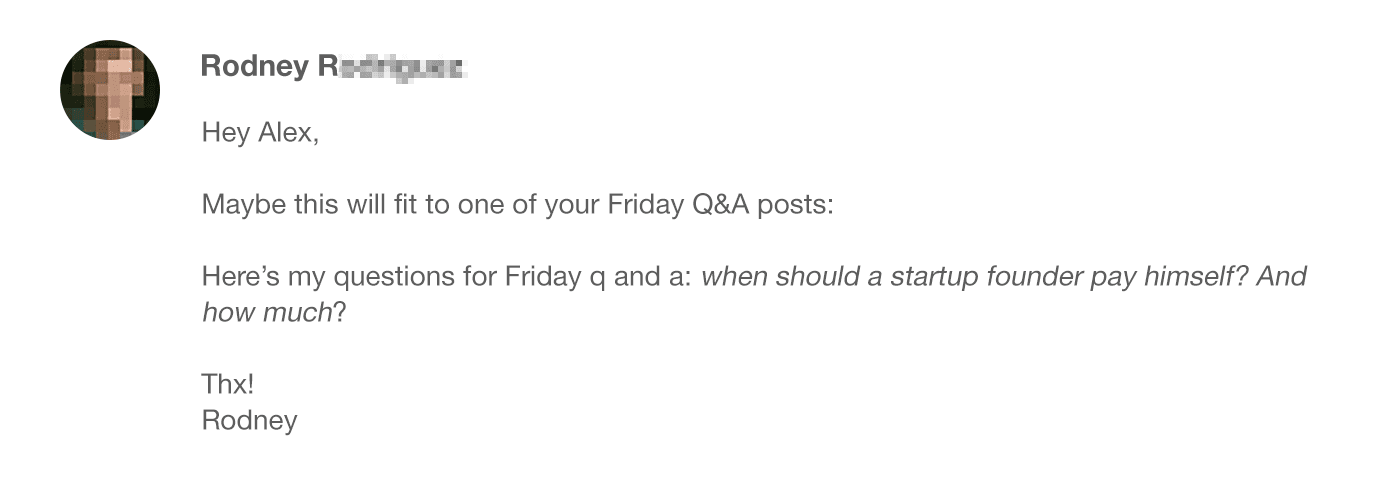Friday Q&A: How much should a startup founder pay themselves?
Every Friday, we’re answering your questions about business, startups, customer success and more.
Happy Friday!

This is a question that every startup founder has to solve, and I’ve seen a lot of different approaches.
My take is very similar to the one Ben Congleton, Olark co-founder, shared in his interview on our blog.
Initially living on Y Combinator’s $25,000 grant in Silicon Valley, one of the most notoriously expensive markets in the world, doesn’t seem easy.
But the Olark team didn’t have a choice.
Fortunately, Ben and his co-founders were used to living frugally. Previously, as a grad student in Michigan, he made $30,000 per year, and saved $12,000 of it.
I was living on maybe $20,000 a year, and not really feeling poor.
Matt and Zach had graduated and had real engineering jobs, but they were living like college students at the time, and Roland was living in Charlottesville not making much money, so the entire founding team was used to being pretty scrappy by nature.
None of us really wanted to drive BMW’s or anything like that, so we just kept a low-key scrappy maker culture, so that $25,000 went reasonably far.
We were young and used to eating like college students and we didn’t have a car. We would bike to the supermarket and make all of our food ourselves. It wasn’t that hard to do, and so at first we just paid ourselves in food and rent, and that was it.
As the company — and the revenue — grew, the team was finally able to hire themselves.
You don’t want founders to be unhappy. It’s hard enough running a company, you don’t also need to feel poor at the same time. So we followed the policy of ‘hiring ourselves first.’ As soon as we could, we began paying ourselves salaries — though nowhere near Silicon Valley salaries — before making our first ‘real’ hire.
Over time, Olark kept growing, going, in Ben’s words, “from Ramen profitability to Whole Foods profitability.” Still, the founders maintained their thrifty ways (living together and having the company cover room and board certainly helped), and were soon able to hire their first employee.
There were never really times when our pay was drastically different from other people at Olark, but it’s important for us to reward ourselves like we’re part of the team, and not some special class of employee that has to suffer so that other people can get paid.
So, in short: make sure that you have enough to live on in the early days, and keep your personal burn rate as low as possible.
But as the company grows and you can afford it, pay yourself enough to not be unhappy or feel like you’re sacrificing so that other people can get paid.